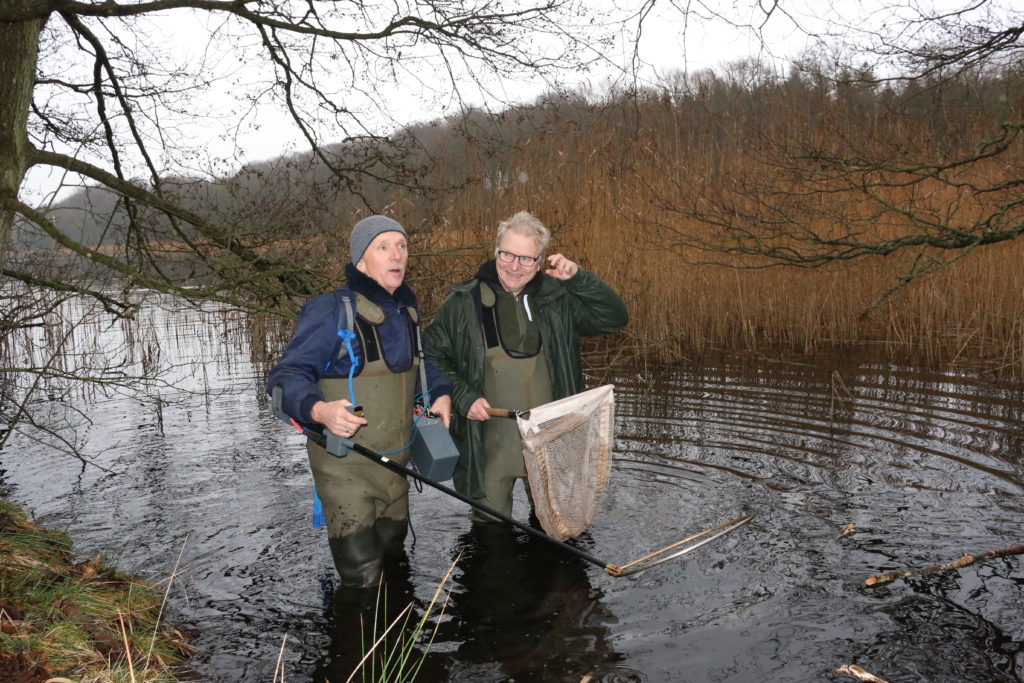Lakes all over the world are in a miserable state. Two thirds of Danish lakes do not live up to EU minimum standards regarding the aquatic environment.The reason is decennials of neglect in the shape of wastewater and washed-out nutrients from intensive farming. A ‘green’ lake emits twice as many greenhouse gases as a clear lake, and put together, lakes all over the world visibly impact the climate.On the other hand, phosphorus is a precious resource: Phosphorus is mined in China, Russia, USA and Morocco, but when the mines are emptied in a generation or two, we will need to find our phosphorous somewhere else in order to provide fertilizer for our crops. There is no alternative to phosphorus.
In the first phase of the project, Lake Ormstrup has been selected as the test object. Both the environment and the animals in and around the lake have been rigorously mapped and characterized in 2020, and the researchers will follow the development over the next years as they set out to develop and test new lake restoration methods and technologies.
We want to know where the phosphorus is stored and in which form; the history of the lake; how much sediment can be removed; can it be used as fertiliser; how do the fish respond to the interventions; and what are the socio-economical consequences of the activities.
A gentle extraction method
Standard lake restoration techniques are digging out the sediment or adding aluminium to bind phosphorus, but both are very brutal interventions, and neither are guaranteed to last. The researchers want to find a new method to extract the harmful phosphorus from the lake and transfer it to a place where it is useful. They look into whether the sediment can be used directly as fertilizer in farming, or if it is bound in chemical compounds that prevent crops from extracting the nutrients.
The consortium will welcome research colleagues from more Danish universities in the next phase of the project that can help develop and test the methods.

DTU’s engagement i forprojektet ledes af lektor Christian Skov fra DTU Aqua (højre), her i selskab med kollegaen Jes Dolby. Foto: Poul Due Jensens Fond
Several universities onboard
Four universities are part of the project as per 1 January 2021:
- DTU AQUA, led by Assistant Professor Christian Skov (macro- and fish ecology)
- SDU BioScience, headed by Assistant Professor Kasper Reitzel (projekt management, phosphorus expertise)
- AU BioScience, headed by Senior Researcher Martin Søndergaard (physical/chemical processes in lakes) and Professor Dennis Trolle (data modelling)
- KU Food and Resource Economics, headed by professor Søren Bøye Olsen (socio-economic modelling of the lake, the interventions and the consequences)
This flagship project is a sister runs parallel to “Circular Phosphorus Recovery (RePair)”.

